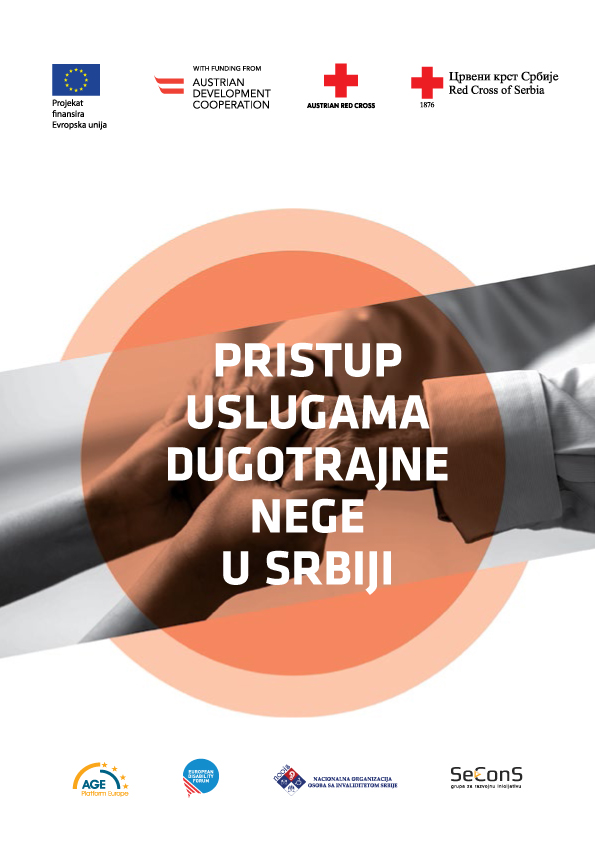Access to long-term care services in Serbia

The study “Access to long-term care services in Serbia” was created as part of the three-year project “Strengthening resilience of older persons and persons with disabilities during COVID-19 and future disasters”. The coordinator of this regional project is the Red Cross of Serbia, and it is implemented with the support of the European Union, Austrian Development Agency and the Austrian Red Cross. The project is implemented in Serbia, Albania, Bosnia and Herzegovina, Montenegro, North Macedonia and on the territory of Kosovo, and one of the most important components of the project is research on access to long-term care services in all territories and an attempt to sensitize the public for the implementation of research results.
Among persons over 65 in Serbia, as many as 40.7% are those who need long-term care due to difficulties in functioning, and among persons with disabilities aged 18 to 64, there are even more – as many as 64%. They are mostly cared for by informal caregivers (90.5% of them do not receive any compensation for this), and services provided by the public sector or by private service providers and civil society are minimally represented.
The research within this study, conducted on a sample of 650 persons over 65 and persons with disabilities aged between 18 and 64 years, shows that older persons need support the most in household maintenance activities, paying bills and purchasing groceries, going to the doctor, organizing repairs in the apartment, all this more for women than for men (except in case of food preparation). Long-term care is significantly more needed by those over 75 than by those aged 65 to 74 (47.7% versus 34.5%). Persons with disabilities need support the most in household maintenance, going to the doctor, making purchases and paying bills.
Almost every tenth person who needs some form of long-term care does not have any support and is forced to manage alone, and this is more pronounced in smaller towns than in villages and large cities, as shown by the results of the research among the respondents of this study. The reasons for this are most frequently the respondents' assessment that they can still function independently (persons with disabilities under 65), insufficient information about the availability of services (persons over 65) and lack of trust.
Informal caregivers are the main pillar of care, namely spouses and children, with men more likely to rely on their wives (40.2% of men versus 25.3% of women), and women on their children (48.8% of women versus 31% of men). Persons with disabilities aged 18 to 64 rely on their parents in almost half of the cases (46.2%).
The vast majority (90.5%) of respondents who rely on the support of informal caregivers in their daily activities do not receive any compensation from the state for other people's care and assistance, and in only 23.3% of cases informal caregivers receive some expert advice on providing care from appropriate organizations and institutions such as institutions of social protection, healthcare or humanitarian organizations.
The recommendations that emerged from the study say that the fragmented way of providing services, which implies separate health and social care systems, should be changed and made integrated. Also, that the variety of services should be increased by using innovative solutions and through the use of information and communication technologies, that the capacity of social and health care should be increased, informal caregivers should receive more support, as well as that more attention should be paid to the provision of long-term care in emergency circumstances (as shown by the COVID-19 pandemic).
